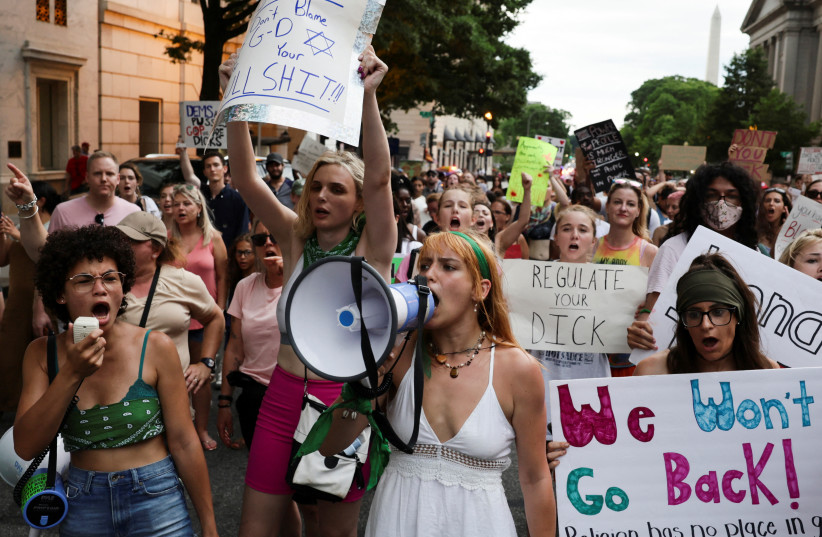Social media is on fire with the overturning of Roe v. Wade, and once again we are seeing that the level of rhetoric when it comes to hot button issues there, is actually damaging efforts to resolve disagreement, rather than resolve it. The fact is that most people who are pro-choice are not extremists, and most people who are pro-life are not either, but if you looked at Twitter you’d never think that.
The norms on social media are similar to the phenomenon we see with the Israeli-Palestinian conflict online. If we are going to make progress and find solutions, we need to elevate the level of dialogue online – not use social media as a tool to further polarize the public.
Over the last decade, I’ve tracked and analyzed the rhetoric on social media platforms related to the Israeli-Palestinian conflict. What began as sometimes legitimate criticism of Israel back in 2008, or 2012, over time has become increasingly extreme and antisemitic. From 2014 to Operation Guardian of the Walls in 2021, hate speech against Israel rose exponentially – and today we are facing a pandemic of antisemitism across platforms.
At least two factors contribute to this development. First, the structure of the social media platforms and their algorithms reward content that receives immediate high engagement. Naturally, people interact most with what they agree with, thus creating “bubbles” of people online where they are exposed only to their own views. Suddenly, it becomes increasingly rare to hear opposing views, shifting the entire debate to be more extreme.
Second, the radicalization of speech on social media has normalized antisemitism (and hate against other groups as well). It’s become part of the dialogue to use inflammatory, inaccurate and highly emotionally-charged language to speak about Israel and Jews. Sadly, we see similar trends on other controversial and complex issues.

In the case of Roe v. Wade, social media have served as an outlet for people to vent their frustration, with open calls to violence and threats against US Supreme Court justices. Elected officials such as Alexandria Ocasio-Cortez are claiming the Supreme Court is “illegitimate” among other things.
Violence is not the answer
Whether one is pro-choice or against abortion completely, violence and undermining the Supreme Court is not the path that will bring the US to a mutually agreed upon decision, which is what needs to happen for society to move forward and focus on pressing issues that actually do concern the federal government (unlike abortion).
Statistics show that the majority of the American public actually supports abortions with some kind of restrictions. Only the smallest minority surveyed, according to Gallup, opposed abortion in any capacity, and it remains to be seen how individual states may resolve this conflict. Yet the hysterical overreaction on social media by extremists – on both sides – would have you believe no peaceful solution could ever be found.
A healthy society cannot continue if it has no faith in its own democratic institutions. It is one thing to question systems, and it is another to denounce them as “illegitimate” – whether it is the conservatives who claim the election was rigged against Donald Trump, or today’s current rhetoric around the US high court from members of Congress like AOC. This has lasting and dangerous ramifications for the future.
Whether the issue is Israel and the Palestinians, abortion, or any other hot button, we all must learn to listen – and compromise when needed. All sides must understand they won’t achieve 100% of their goal, because that’s not how a democratic society (or free speech) works. And, when it comes to the Internet, we need to understand that we see only a fraction of the perspectives, and that the more extreme statements tend to garner more responses – giving a false perspective of how prevalent that view is.
It’s time to be smarter about how we speak online. Only through a higher level of respectful dialogue can we hope to make progress on difficult issues.
The writer is the CEO of Social Lite Creative and a human rights activist.
